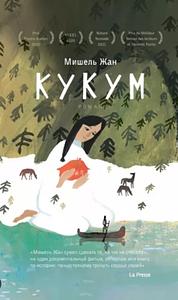Take a photo of a barcode or cover
emotional
hopeful
reflective
sad
slow-paced
emotional
informative
inspiring
lighthearted
reflective
sad
medium-paced
Plot or Character Driven:
Plot
Strong character development:
Yes
Loveable characters:
Yes
Diverse cast of characters:
Yes
Flaws of characters a main focus:
No
emotional
inspiring
reflective
sad
fast-paced
Plot or Character Driven:
Plot
Strong character development:
Yes
Loveable characters:
Yes
Diverse cast of characters:
No
Flaws of characters a main focus:
No
adventurous
inspiring
reflective
medium-paced
Strong character development:
No
Loveable characters:
Yes
Diverse cast of characters:
Yes
Flaws of characters a main focus:
No
emotional
inspiring
reflective
sad
medium-paced
Plot or Character Driven:
Character
Strong character development:
Yes
Loveable characters:
Yes
Diverse cast of characters:
Yes
Flaws of characters a main focus:
No
challenging
dark
emotional
reflective
sad
fast-paced
Plot or Character Driven:
A mix
Strong character development:
Yes
Loveable characters:
Yes
Diverse cast of characters:
Yes
Flaws of characters a main focus:
No
Kukum by Michel Jean, translated from the French by Susan Ouriou, is the novelized story of Jean's own great-grandmother Almanda Siméon, a French Canadian settler who, at 15, met and fell in love with a young Innu man and, enticed by promises of freedom from the drudgery of farm life, married him and joined his community.
Almanda learns the Innu-aimun language and their nomadic lifestyle and culture, and becomes in every way that matters a true Innu woman. She shares in their struggles when their territory is logged into oblivion, when they are forcibly relocated to a reserve, and when her grandchildren are taken away to a residential school. Through the lens of her exceptionally long lifetime, we see her community profoundly changed by alcoholism, violence, and the generational divide caused by language loss, and come to understand the necessity of traditional values to the soul of a people. It's beautiful and heartrending and really gives a sense of exactly what has been lost.
That said, though, the pacing creates a bit of a double-edged sword. Kukum was billed to me as this sweeping tale of a century of Canadian history. And while it certainly is that, the first 40% of the book takes place during Almanda's first year with the Innu, making the latter half of the book feel rushed once you start flying through the decades.
White women joining Native communities for love was not an entirely uncommon occurrence when you actually dig into the historical records. This is even the second non-fiction account of such a thing I've read, and certainly the more literary.
Almanda learns the Innu-aimun language and their nomadic lifestyle and culture, and becomes in every way that matters a true Innu woman. She shares in their struggles when their territory is logged into oblivion, when they are forcibly relocated to a reserve, and when her grandchildren are taken away to a residential school. Through the lens of her exceptionally long lifetime, we see her community profoundly changed by alcoholism, violence, and the generational divide caused by language loss, and come to understand the necessity of traditional values to the soul of a people. It's beautiful and heartrending and really gives a sense of exactly what has been lost.
That said, though, the pacing creates a bit of a double-edged sword. Kukum was billed to me as this sweeping tale of a century of Canadian history. And while it certainly is that, the first 40% of the book takes place during Almanda's first year with the Innu, making the latter half of the book feel rushed once you start flying through the decades.
White women joining Native communities for love was not an entirely uncommon occurrence when you actually dig into the historical records. This is even the second non-fiction account of such a thing I've read, and certainly the more literary.
Une magnifique découverte. Doux comme la brise en étant percutant comme une tempête…
emotional
informative
reflective
sad
slow-paced
3.5 étoiles
Un roman biographique avec une histoire émouvante et pertinente qui raconte la culture autochtone et la perte que ce peuple a subie aux mains des colonisateurs. Ça nous en apprend beaucoup sur la réalité des autochtones au Québec que nous avons jamais apprise comme il le faudrait.
Un roman biographique avec une histoire émouvante et pertinente qui raconte la culture autochtone et la perte que ce peuple a subie aux mains des colonisateurs. Ça nous en apprend beaucoup sur la réalité des autochtones au Québec que nous avons jamais apprise comme il le faudrait.




